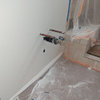Green or Yellow?
sofaspud
14 years ago
Related Stories

DECORATING GUIDESPaint Color Ideas: 8 Uplifting Ways With Yellow and Green
Dial up the cheer with yellow and green paint combinations sure to cast off winter doldrums
Full Story
COLORStraight From the Runway: Yellows and Greens
Freshen up your space with this spring forward color combination
Full Story
YELLOWColor Guide: How to Work With Bright Yellow
Let the sunniest color on earth add a burst of energy to your rooms — and we're not just talking with pillows
Full Story
Wasabi Green Spaces That Wow
Yellow-Green is an Attention-Getter on Home Backdrops and Accents
Full Story
LIVING ROOMSRoom of the Day: Green Walls Raise the Energy in This Living Room
A vibrant paint color takes a pale yellow space to an upbeat place
Full Story
COLORGreat Spring Color: Add a Pinch of Pollen Green
Sprinkle in this sprightly yellow-green hue to perk up your home interiors for spring
Full Story
COLORColor of the Week: Spring Blossom Yellow
Tired of winter yet? Bring on spring with our featured color of the week
Full Story
DECORATING GUIDESPaint Color Ideas: 7 Bright Ways With Yellow and Orange
Go with the glow. These sample palettes and room examples show you how to work with two of the happiest hues around
Full Story
COLORBathed in Color: Favorite Yellows and Golds for the Bath
Get a golden glow for your bathroom with these expert paint picks and ideas for yellow walls
Full Story








User
sofaspudOriginal Author
Related Professionals
Fairfax Handyman · Livingston Handyman · Holden Kitchen & Bathroom Remodelers · Cloverly Kitchen & Bathroom Remodelers · Andover Kitchen & Bathroom Remodelers · Chandler Kitchen & Bathroom Remodelers · Hickory Kitchen & Bathroom Remodelers · Honolulu Kitchen & Bathroom Remodelers · Londonderry Kitchen & Bathroom Remodelers · Oceanside Kitchen & Bathroom Remodelers · Pearl City Kitchen & Bathroom Remodelers · Red Bank Kitchen & Bathroom Remodelers · Sioux Falls Kitchen & Bathroom Remodelers · Warren Kitchen & Bathroom Remodelers · South Jordan Kitchen & Bathroom RemodelersUser
sofaspudOriginal Author
User
sofaspudOriginal Author
User